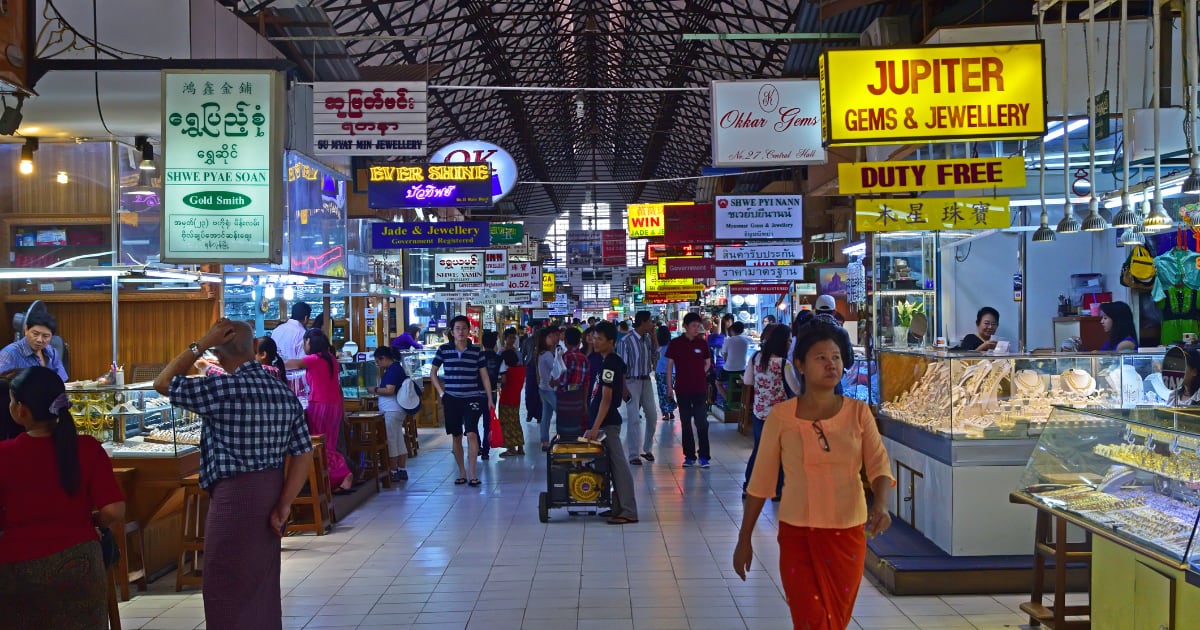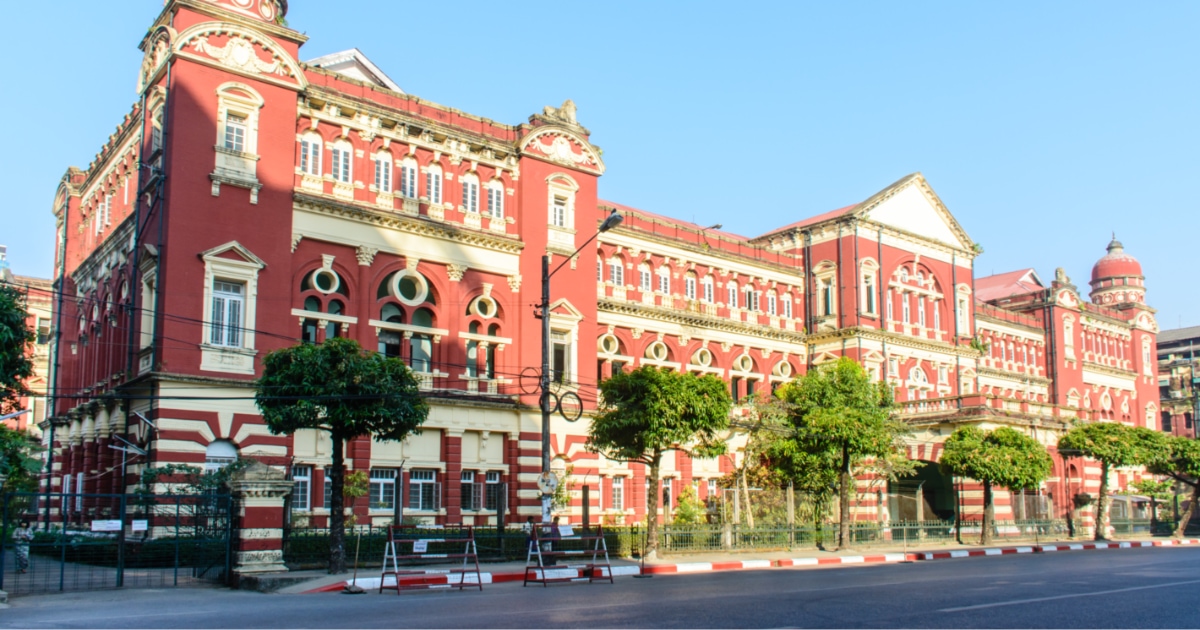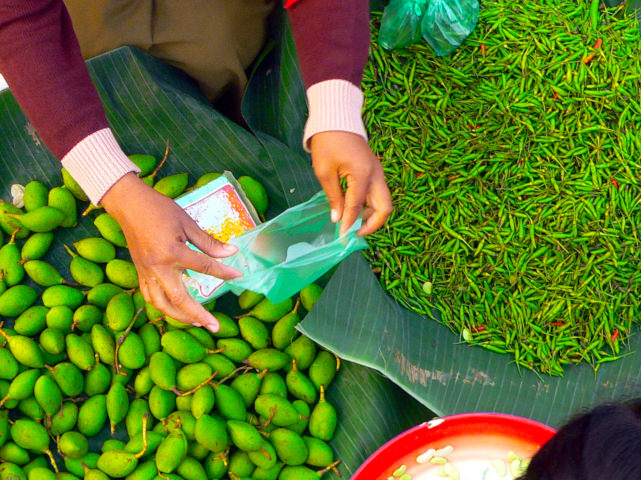Myanmar Highlights
January 2015
OECD report on Myanmar finds investment policy is being hampered by skills shortage
According to Mr. Aung Naing Oo, chairman of Myanmar’s Directorate of Investment and Company Administration, Myanmar’s efforts to grow investment in its manufacturing sector are being hampered by a shortage of skilled labour and continuing pervasive corruption. Despite workforce constraints, the Government plans to focus on attracting foreign direct investment (FDI) to labour-intensive industries. More than 42% of FDI was invested in the manufacturing sector in the year ending April 2014, compared with just 5% between 1990 and 2013. Mr. Aung Naing Oo’s remarks echo the findings of a report published by the Organisation for Economic Co-operation and Development (OECD), which, among other things, stated that companies in Myanmar were struggling to find enough skilled workers, a constraint which, the report states, is set to become more acute, especially as Myanmar’s population starts aging after 2035. The OECD says the education system – which is geared towards preparing students for university, a goal few will reach – needs to be overhauled to include more vocational and skills training, more relevant to foreign manufacturing companies pouring investment into Myanmar. Only 0.5% of upper secondary students in Myanmar are enrolled in vocational training, compared to almost 45% in China.
Based on a study of more than 1,000 manufacturing firms across the country, the OECD report also found that corruption in Myanmar remains rife. According to the survey, more than half of manufacturers operating in Myanmar have had to pay under-the-table fees to obtain permits and licenses, generally priced at 500,000 Myanmar kyat (US$500). A few respondents of the organization’s survey said they had to pay bribes of over US$5,000. The prevalence of corruption in Myanmar, which is ranked 156 out of 175 countries on Transparency International’s corruption perceptions index, has made some companies revaluate their Myanmar investment strategies. The OECD predicts a brighter picture for Myanmar’s agricultural sector, stating that the country has the potential to become an agri-food trade hub in Southeast Asia, with abundant crop and fish resources. At present the majority of Myanmar’s farms are small and relatively unproductive with low yields and poor-quality exports. According to the OECD, Myanmar will need to diversify away from rice to other crops like pulses and rubber, which could fetch higher prices. The OECD also recommends that Myanmar invests more in agricultural research and development to increase productivity and promote innovation in agriculture, harnessing the country’s improved telecommunications infrastructure. (Source: http://blogs.wsj.com/frontiers/2015/01/16/myanmars-investment-drive-hampered-by-skills-shortage/ ; 16 January 2015)
Myanmar’s Internal Revenue Department to adopt new approach to land valuations
Myanmar’s Internal Revenue Department (Revenue Department) has announced it will intervene to assess property prices in those areas of Yangon where prices significantly deviate from city-wide market prices. Historically Revenue Department used the same methods to assess land prices irrespective of a property’s specific location. For example, the same criteria were used to assess the prices for plots of land situated adjacent to roads and the prices for plots of land which are more difficult to access. The Revenue Department will invite local officials and real estate agencies to price plots of land in different townships (Source: http://www.mmbiztoday.com/articles/ird-rethink-land-values, 13 January 2015)
Myanmar Gems and Jewelry Entrepreneurs Association to establish bank
The Myanmar Gems and Jewelry Entrepreneurs Association (MGJEA) plans to establish its own bank to ensure greater oversight in the industry as part of its efforts to combat money laundering. MGJEA proposes to open bank branches in Yangon and in other areas where gem trading is carried out, such as Mandalay, Mogok, Sagaing, Hpakant and Myitkyina. The bank will provide support to MGJEA members together with other participants in the sector. The gem trade is extremely valuable to the Myanmar economy. The Government supports the sector by holding annual gem and jewel exhibitions in Naypyidaw. (Source: http://www.mmbiztoday.com/articles/gem-traders-establish-bank, 12 January 2015)
Shan State Government invites expressions of interest for development of 30 MW power plants
The Shan State Government has invited expressions of interest in relation to the development of 30 MW power plants. The plants are to be developed on a Build-Operate-Own basis. Interested parties are asked to submit tender documents including maps identifying the location of the proposed plant and project plans to the Ministry of Electric Power, the Ministry of Industry and the Shan State Government in Taunggyi. Approximately 74% of Myanmar’s total power output comes from hydropower; 23 % is produced using natural gas and 3 % using coal. (Source: http://www.elevenmyanmar.com/index.php?option=com_content&view=article&id=8655:shan-state-invites-firms-to-build-small-power-plants&catid=33&Itemid=356, 12 January 2015)
First Private Bank to launch mobile banking service
First Private Bank Ltd (First Private) intends to introduce a new mobile phone banking service in early 2015. The bank is currently putting in place the hardware, software and data-center necessary to support the mobile banking service. First Private has applied to Myanmar’s Central Bank for approval for the new service. The system, which has been developed in cooperation with Frontier Technology Partners, will facilitate online payments and money transfers. (Source: http://www.mmbiztoday.com/articles/first-private-bank-develops-phone-based-banking, 12 January 2015)
International Finance Corporation and Myanmar Oriental Bank to expand cooperation
The International Finance Corporation (IFC) and Myanmar Oriental Bank Ltd (Myanmar Oriental) have agreed to expand their cooperation arrangements to certain international banking facilities. Myanmar Oriental is seeking to widen its customer base by offering its banking services internationally. Under the most recent agreement the IFC will, subject to the approval of the Central Bank of Myanmar, advise Myanmar Oriental on its international operations and products. In February 2014, Myanmar Oriental and the IFC signed an agreement in relation to a US$5 million trade finance facility. The IFC also provides and guarantees Myanmar Oriental’s letters of credit used, and advises on it on its corporate governance and risk management systems. (Source: http://www.mmtimes.com/index.php/business/12722-myanmar-oriental-bank-aims-to-improve-with-ifc-support.html, 5 January 2015)
Small and Medium Industrial Development Bank rolls out loan guarantee insurance to Myanmar SMEs
A non-collateral loan insurance scheme established by Myanmar’s Small and Medium Industrial Development Bank (SMIDB) is now accepting applications from Myanmar SMEs. Under the scheme the SMIDB will provide credit guarantee insurance on loans of up to Ks10 million. Two types of credit guarantee insurance are available. Collateralised loans can be insured at a rate of 2% in year one, 1.5% in year two and 1% thereafter whereas non-collateralised loans can be insured at a rate of 3% in year one, 2 % in year two and 1% thereafter. (Source: http://www.elevenmyanmar.com/index.php?option=com_content&view=article&id=8328:no-buyers-for-credit-guarantee-insurance&catid=33:business&Itemid=356, 7 January 2015)
PT Timah renews interest in Myanmar smelter facilities
Indonesian state-owned tin miner PT Timah (Persero) Tb (Timah) has announced it plans to proceed with its proposed investment in Myanmar despite previously shelving its plan to invest in a tin-smelter facility. Timah had originally proposed to commence work on the tin smelter at its 10,000-hectare tin mining exploration area in Pubyien-Tamok, Tanihary. However, the plan was shelved due to disappointing exploration results. Timah are now evaluating other investment options including the acquisition of a third-party owned smelter facility Indonesia, one of the world’s leading tin producers, has placed curbs on exports, causing global tin prices to rise. Timah has set aside approximately US$87 million for capital expenditure in 2015, compared with approximately US$63 million in 2014. Timah is also proposing to establish a new Myanmar subsidiary to invest in property sectors in Myanmar. (Source: http://www.livetradingnews.com/indonesian-miner-invest-myanmar-92613.htm 19 January 2015)
Best Boutique Firm 2015 – Asian Legal Business Awards
Hong Kong Office:
Dominion Centre
12th Floor
43-59 Queen’s Road East
Hong Kong
Tel: + (852) 2905 7888
Fax: + (852) 2854 9596
Myanmar Office:
Charltons Legal Consulting Ltd
161, 50th Street
Yangon, Myanmar
email: myanmar@charltonslaw.com
This newsletter is for information purposes only. Its contents do not constitute legal advice and it should not be regarded as a substitute for detailed advice in individual cases.
Transmission of this information is not intended to create and receipt does not constitute a lawyer-client relationship between Charltons and the user or browser.
Charltons is not responsible for any third party content which can be accessed through the website.
If you do not wish to receive this newsletter please let us know by emailing us at unsubscribe@charltonslaw.com








